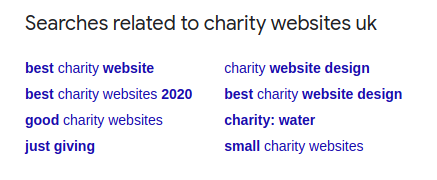
SEO - see your website from a bird’s eye view (as well as that of a worm)

It’s all too easy to bury yourself in the detail, but good SEO practices encourage you to look at the big picture as well as the minutiae. You have to keep in mind the tactical approaches to making your page popular and well-indexed by search engines, but spend some time thinking about your site strategy over time.
Let’s start with the worm’s eye view before zooming out to look at the site as a whole.
Worm’s eye view
A lot of good SEO takes place on each and every web page. Google doesn’t share details about its algorithms, but there’s plenty of research to inform you how to make each piece of your precious content hit harder.
URLs - keep them short and to the point
Try to keep your URLs as short as you can, and make sure you include your target keyword in your links, too. For example, if you are drafting a blog piece about hosting, a URL such as ‘/hosting-support’ would be more effective than ‘/services/blog/where-to-put-your-live-site’.
Title tags
Your page titles are super important in making your site visible on search engines. We know that we should keep them focussed on the matter in hand and include some of your keywords if appropriate, but there are some tricks of the trade to bear in mind, too.
Did you know that titles that include numbers get 36% more clicks than those that don’t? This explains the endless ‘5 good reasons to...’ or ‘My top 10 reasons why...’ titles that we see all over the web. And believe it or not, you should get into the habit of adding brackets to your page titles (because using brackets gets up to 38% more clicks).
Links in your content
Try to insert hyperlinks - but only when they are relevant and helpful.
We always try to place at least a couple of internal links into every page on our site. It’s also been proven that inserting two or more external ones per page to other relevant sites helps your Google ranking, too.
Bird’s eye view
Keywords tell Google about the whole site, as well as the page itself
Don’t be a slave to your keywords. Years ago, ‘keyword stuffing’ and ‘keyword density’ were all the rage, but as search engines have become more sophisticated, so should your strategy. Your content should read naturally, and provide helpful and straightforward information for your site visitors. You shouldn’t aim to shoe-horn your keywords into paragraphs where they simply don’t fit. And because Google rewards popularity, you must genuinely write useful stuff that people will visit and find valuable.
Here's a tip if you need some pointers for casting the keyword net a little wider. If you use Google to search for your keyword, you can then scroll to the bottom of the search results page. The ‘Searches related to...’ box contains a set of ideas to help you with this. The image below shows a search for ‘charity websites uk’.
Don’t be scared of longer content pieces
It used to be a watchword in SEO to keep your pages short. But recent research has turned this on its head. Longer pieces (say, web pages over 1,500 words) will naturally contain relevant related words as well as your keywords, so search engines can build some context and will be better informed about what your page - and the wider site - is all about.
Make your site speedy
Google, usually quite shy about how it scores your pages, has publicly confirmed that it uses site speed as one marker in ranking content. Be professional about image and other media size in a page, and use a CDN to deliver your content more quickly, especially if your site has a global rather than a national audience.
Decent hosting is perhaps the single most important way to speed up your site pages.
Use multimedia
Google looks at bounce rates of your content, and one important and proven way to make pages stickier is to use media wherever possible. People are just more likely to spend longer on a page that performs well and has some interesting elements.
Do you need a hand with your website's performance?
Why not get in touch and talk to us about your site's impact?
